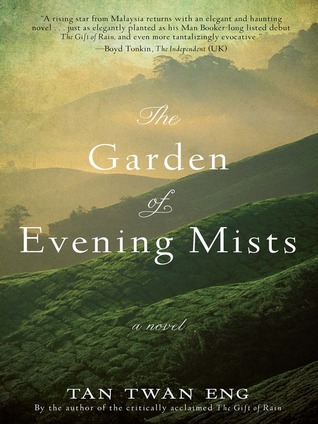

Initially turning down her request, Aritomo then proposes that Yun Ling become his apprentice until the monsoon starts so that she will be able to develop her garden herself. Yun Ling travels to the Highlands to ask Aritomo to design a garden in memory of her dead sister, who had been a lover of Japanese gardens, but her hatred of the Japanese make their first dealings very difficult. Created by Nakamura Arimoto, a Japanese man who was once a gardener to the Emperor, it is a traditional Japanese garden created in the Highlands of Malaya.

Faced with the prospect of forgetting everything that makes her what she is, events that she has tried for most of the life to suppress come to the surface, in particular her time in a Japanese prison camp during the Second World War, a camp in which her older sister died, and from which Yun Ling was the only survivor.The book focuses on Yun Long's first visit to the Cameron Highlands in 1951, when she first visited the garden of Yugiri. And it is to him that she discloses the true reason for her early retirement: she has been diagnosed with an incurable degenerative disease which means that soon she will start to lose her memories and the very faculty for language itself. A demanding and often abrasive woman, used to keeping lawyers in order from her position on the bench, Yun Ling is not easy to warm to: her one close friend is Frederik Pretorius, the South-African owner of the neighbouring Majuba Tea Estate. Teoh Yun Ling takes early retirement from her position as a Supreme Court Judge in the Malaysia of the 1980's to return to the garden of Yugiri in the Cameron Highlands: a place which had a pivotal role in her life but one that she had not visited for the last thirty-six years.


 0 kommentar(er)
0 kommentar(er)
